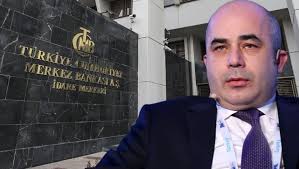The central bank of Turkey governor Uysal in his speech at the 12th International Conference on Islamic Economics and Finance said the bank would continue taking decisions Turkey neededto ease the effects of the global pandemic.
“The monetary measures we have taken are aimed at supporting production and financial stability so that this period can be overcome with minimal damage,” Uysal told.
“Thus, we aimed to minimize the long-term effects of the temporary pandemic on production and employment,” Uysal noted. “(With steps taken) we aimed to support financial stability and the post-pandemic recovery process by providing the financial system and the real sector with the liquidity they need under appropriate conditions,” he added.
The governor noted that the measures aimed at overcoming this period with minimal damage by supporting production and financial stability in the economy have supported the liquidity and credit conditions of the financial sector, and the money transfer mechanism has maintained its effectiveness.
To limit the negative effects of coronavirus-related developments, it is important that the financial markets, credit channels and cash flow of firms continue to operate in an uninterrupted and healthy manner, Uysal said.
The bank has taken multiple measures to stimulate the Turkish economy and government finances in the face of the coronavirus pandemic.
- supporting the liquidity in the Government Domestic Debt Securities (GDDS) market by incorporating asset- and mortgage-backed securities into the collateral pool to preserve the market depth of capital markets and diversifying the liquidity opportunities available to financial institutions.
- reallocating TL 20 billion ($2.93 billion) of the limit of Turkish lira rediscount credit facility as advance loans against investment commitment for more effective utilization to support investments in select critical sectors, in line with government efforts to reduce the country’s dependence on imports, to encourage investments that increase productivity, support exports and reduce the problem of the current account deficit for sustainable growth.
- executing a record bond-buying stimulus as part of quantitative-easing measures. It has bought more than TL 50 billion of bonds since the end of March, shortly after the first coronavirus case in the country was announced. Those purchases include some TL 23 billion from the Unemployment Insurance Fund.
- setting the bond purchase limit at 10% of its assets, up from 5%, but the debt from the Unemployment Insurance Fund is not included in that quota.
The share of government debt among its assets exceeded 10% last week, according to official data. The bank holds some TL 75.6 billion of government debt as of June 8, up from TL 19 billion at the end of 2019.
The central bank has a broad and powerful set of tools to minimize the negative effects of the pandemic, the governor said.
“In this period, we will continue to determine our monetary stance to ensure the continuity of the decline in inflation and use all the tools we have with a data-driven approach for price stability and financial stability purposes,” Uysal said.
Turkey’s core inflation is currently at 10%.
“As we have always stressed, price stability contributes to sustainable growth by reducing uncertainties and supporting the growth potential of the economy, while healthy and inclusive growth strengthens the sustainability of price stability,” he argued.
The bank last month delivered the ninth consecutive rate cut to counter the economic downturn brought on by the outbreak. It cut its benchmark one-week repo rate to 8.25% from 8.75% versus the headline CPI inflation of 11.4%. Thus, the bank has cut its key policy rate by 1,575 basis points since July last year in a bid to stimulate the economy which of course paved the way for a rising inflation and weak TL despite demand contraction since March 2020.
